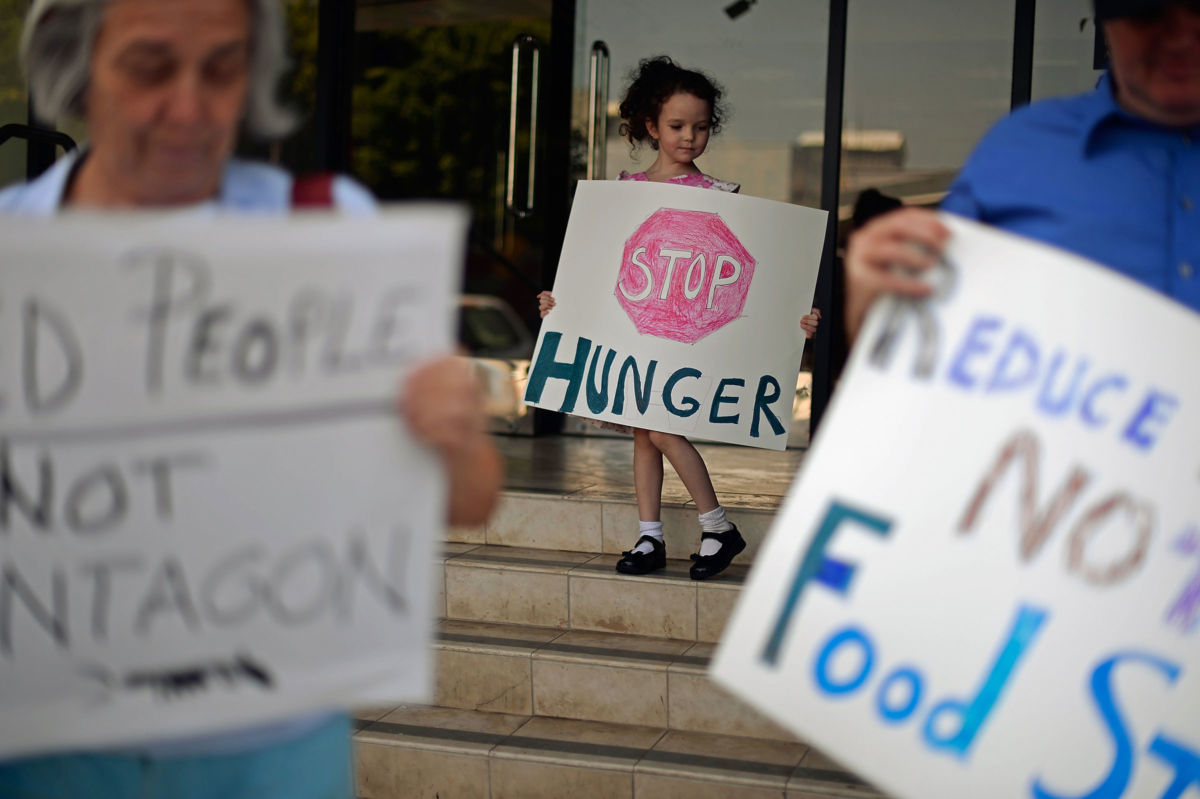In a move critics denounced as the Trump administration’s latest effort to bypass Congress to attack low-income families, the U.S. Department of Agriculture on Tuesday proposed a new rule that would strip food stamps from more than three million Americans.
USDA chief Sonny Perdue, in a call with reporters Monday, said the rule change would end automatic food stamp eligibility for those receiving other forms of federal and state assistance. The 60-day comment period on the proposal is set to begin Wednesday.
As the Washington Post reported: “Current rules give states latitude to raise SNAP income eligibility limits so that low-income families with housing and child care costs that consume a sizable share of their income, can continue to receive help affording adequate food.”
“This option also allows states to adopt less restrictive asset tests,” according to the Post, “so that families, seniors, and people with a disability can have modest savings or own their own home without losing SNAP benefits.”
Tens of millions of people suffer from hunger and food insecurity each year in the United States, and the SNAP program is widely recognized by experts as an effective way to reduce hunger — particularly among children.
Policy experts, lawmakers, and commentators warned the Trump administration’s proposed rule — described by one critic as “unconscionable” — would increase hunger among vulnerable Americans.
Sen. Debbie Stabenow (D-Mich.), the top Democrat on the Senate Agriculture Committee, said in a statement Tuesday that the rule would “take food away from families, prevent children from getting school meals, and make it harder for states to administer food assistance.”
“This proposal,” added Stabenow, “is yet another attempt by this administration to circumvent Congress and make harmful changes to nutrition assistance that have been repeatedly rejected on a bipartisan basis.”
As Common Dreams reported in April, the Trump administration is also moving to add punitive work requirements to the SNAP program, a proposal that was met with a flood of angry comments from across the nation.
“This is a direct attack on the most vulnerable among us, and this policy violence cannot go unchallenged,” Rev. William Barber, co-chair of the national Poor People’s Campaign, said at the time.
